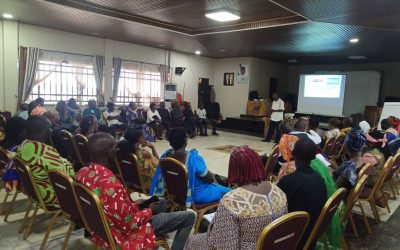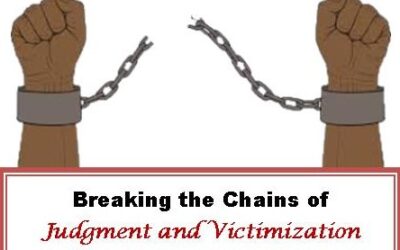For most women and girls in the Bombali District, northern Sierra Leone, accessing justice has been far more arduous than manually tilling acres of farm land in a day. This assertion illustrates the near impossibility of most victims, particularly of sexual and gender-based violence (SGBV), to access justice. For many, it has been not only about the absence of a complaints mechanism, it has been about a feeling of lack of protection to even file a complaint as it would expose them to community ridicule and discrimination. This, naturally, only encouraged perpetrators to revel in impunity. Little wonder incidents of SGBV occurred more in the Norther Province in 2010 and 20122 than in all the other regions of the country.
Reducing the prevalence of SGBV and enhancing access to justice for victims was the main reason TROCAIRE partnered with the Centre for Accountability and Rule of Law (CARL) in 2011. At the inception of the project, CARL carried out a number of activities aimed at ascertaining the level of prevalence, public attitude towards women’s rights and access to justice, traditional beliefs and practices, as well as the capacity and reach of accountability mechanisms such as the police and the courts. The outcomes of these efforts showed that there was need to transform social and cultural norms, rebuild family and community structures and support systems, strengthen the capacity of existing justice service providers, and work with the informal justice mechanisms to ensure their practices conform to international human rights standards. In addition to the other limbs of the strategy, there was need to also employ a beneficiary-ownership approach through local participation or activism.
This was why 37 persons from 12 communities in the Bombali District, were encouraged to serve as community-based monitors in their respective communities. The volunteers immediately received training in different skills that relate to preventing and responding to SGBV. These skills include advocacy, mediation and intervention. They also received training regarding the gender laws and human rights. Their participation has helped transform practices and attitudes in many respects. In communities like Makeni Lol, Makump Bana and Mabolleh, for instance, there was such a culture of secrecy that victims of SGBV never dared to report to either chiefs or the police (where there was police presence). That ‘culture of secrecy’ is slowly ebbing away, thanks to the sustained efforts of community-based monitors. Their ability to mobilize and coordinate large community meetings to discuss SGBV-related issues has been phenomenal. The fact that these sessions have been led fearlessly by women and men of the same community has inspired other members to step up and speak out.
Before the project commenced in 2011, the acceptability level for domestic violence, particularly wife battery and economic violence, was embarrassingly high. Most community members thought, for instance, that wife battery was a ‘private’ affair between husband and wife, and that it would be rude or sheer “busy body” to intervene. This perception has changed since community-based monitors started intervening and educating the community about its role in protecting the rights of not only women, but vulnerable members of the society.
Even when SGBV-related offences fell outside the jurisdiction of local courts and traditional leaders, perhaps out of ignorance or limited options, victims had to seek justice through traditional authorities or local courts. Unfortunately, the outcome was mostly disastrous for the victims.
Today, more victims turn to community-based monitors for support in terms of accessing justice. They have been helpful in mediating between disputing couples, and have also helped victims file complaints with the police. Part of the reason is that the volunteers are more proactive and less likely to be influenced by cultural and traditional beliefs. Community-based monitors are simply performing a complementary role rather than competing with local authorities. They’re willing to go to far-flung communities where there is no police or local court, regardless of the time.
There were reports of police officers asking for bribe, court personnel and witnesses unduly influenced, and sometimes family members paid to resolve such cases out of court. Physical access to justice has also been a challenge. This frustration is sometimes worsened by the time and cost it attracts. There are still challenges, of course, but the monitors have helped reduce some of the unhealthy practices both by local court personnel as well as traditional authorities.
The monitors are currently based out of 12 communities in the Bombali Shebura, Makarie Gbanti, Paki Masagbo and Safroko Limba chiefdoms. There are many more communities within these chiefdoms which do not benefit from the services of community monitors. Since these communities are in many ways connected, victims in neighbouring communities are now turning to community-based monitors for help – not only for access to justice for SGBV-related issues but human rights related problems. Isatu Kamara, a resident of Gbarie village (3 miles from Yelisanda – one of CARL’s project communities), is married to Pa Sorie Kamara with 3 kids. For several years, Isatu believed that physical violence was wrong but a victim had no right to report it unless there was evidence of physical injury. This was how Isatu lived in a violent, abusive relationship waiting for that “opportunity” to sustain injury from her husband’s cycle violence before she could file a complaint with the police. During an outreach event organised by CARL’s community-based monitors in Yelisanda, this erroneous perception was cleared up by them. She spoke about how she had repeatedly suffered violence in the hands of her husband, but in light of whae she had learnt, vowed to report all future acts of violence on her. Indeed, she did contact the community-based monitors for help after her husband beat her up. The alleged perpetrator was invited to the Family Support Unit of the police, which dealt with the matter professionally.



